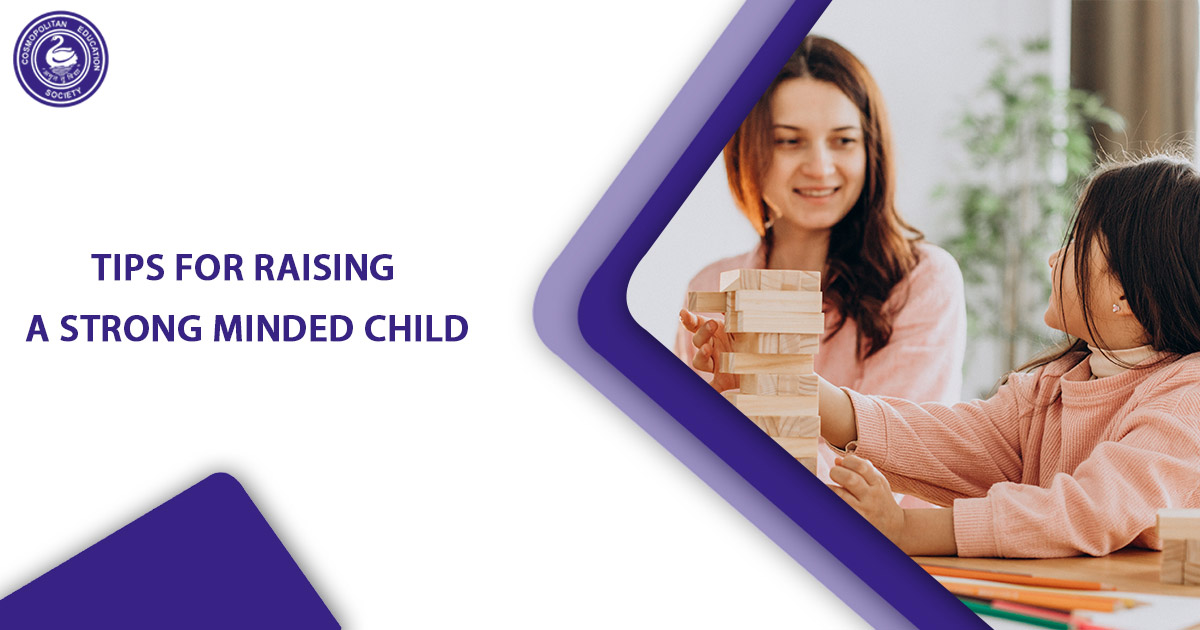
Tips For Raising A Strong Minded Child
Since our emergence thousands of years ago, mental health hasn’t been this low in the history of humanity. For instance, pick a person from one hundred years ago and compare his/her mental health with a modern human, the chances are that the person from the traditional era would possess remarkable psychological resilience compared to us.
Today’s advanced technology world, though has benefited us tremendously, on the other hand, has numbed us, made us lethargic, and taken things for granted. Unfortunately, kids of this generation are further deprived of human interactions and social skills due to over-exposure to mobile phones and laptops. They don’t play with siblings or cousins or friends as much as we did at the same age. PUBG and other video games have overpowered physical play time keeping them busy on their phones or Play Stations.
This is where mental strength starts to deteriorate. When we interact with other people, we not only learn from them but also learn acceptable socializing skills. We get hurt, we get happy hence we learnt to manage emotions effectively. We get a social circle on which we can bank on in times of need.
As human interactions decrease, the opportunities to gain perspective also fades away. This makes kids petulant and weak.
Apart from technology, other things plague kids’ mental health, too. Namely, too much homework, and social anxiety. There are so many ways your child can develop adolescent depression as well. So how do you, as a responsible parent, raise an emotionally resilient child?
Tips for raising mentally strong kids
1. Teach them Self-control:
This is a challenge but at the same time vital pointer to take note of. Teach them to control their emotions in a social setting. As previously mentioned, the lack of human interactions creates a lack of perspective. When your child lacks the ability to empathize, they often become adamant and hence aggressive. So whenever a child acts aggressively, instead of yelling, try to reason it out with him/her. Show them that just because they act stubborn and cry doesn’t mean they are right. That expressing anger or dissatisfaction in a primitive way will get them nowhere. When you sit with your child and teach him/her how to control their emotions, half of the problems seem to fade away.
2. Anger Management:
Not all problems are created by a child. Most often we parents start it and hence we are shaping a weak mind for our children. For instance, when a kid does something wrong, and you react in a harsh tone or use abusive words or even physically punish them, This is doing so much more harm than good. This not only inflicts fear within them but will also destroy their curiosity bug making them dull. At Harshad Valia International School, we believe that any mistake done by a child can be and should be disapproved in a positive and calm manner.
3. Encourage Open Communication:
As mentioned above, emotions are an integral part of a growing human in terms of learning and experience. While it is your duty to make your child practice controlling their emotions, you must also not try to completely snuff it out. If a child expresses sadness, even for trivial things, do not undermine their feelings by saying, “It doesn’t matter” or “it’s not a big deal.” This dismissive nature will seep into the child’s mind, and eventually, they will stop expressing their feelings or never feel anything altogether.
4. Discipline:
Discipline is the strongest backbone a child can possess which will take them places in life. Practicing order and discipline is the key element of a healthy/strong mind. Even something as simple as making their own bed or watering the plants in your garden every day gives them a sense of being systematic. It helps them to nurture an enduring mind.
5. Reflect on Yourself:
No one talks to us as much as we do to ourselves. Here we are referring to “thoughts.” Show your child the importance of cultivating positive thinking. The more a child contemplates good things, the healthier their brain becomes. As a parent, the least you can do is, make sure your child is in a positive environment so that he/she can learn to think only positive things.
Above are 5 pointers on what you can do to nurture mental strength in your child.
Let’s also have a brief look at what you should NOT DO:
1. Do not give in always: Never give in to acceptable stubborn behaviour. If your child is impatient or bad-tempered when denied something, then let them sulk. The moment you reward such negative ways is when your child learns that he/she can have his/her way if they scream aloud. They have to understand that crying aloud will not help.
2. Don’t be over-generous: Refrain from drowning your kids with too many goodies/toys/favorite foods. Most times, the lack of things that we need teaches us to appreciate those things that we already possess. This gratefulness is considered to be an important part of strong mental health. Additionally, not giving them a chance to long for something makes them unappreciative, causing them to be always in need of something new.
3. Don’t expect perfection: Don’t expect your child to be perfect. Not just in studies, but even in something as little as household chores. When a child does something, with all his/her heart, show appreciation. If mistakes are made, then teach them to rectify them without blaming them.
4. Allow them to make mistakes: One of the worst moments in life is not when we make a bad choice, but when we reap its consequences. But on the other hand, such bad decisions enrich us with valuable life lessons that we call experience. So don’t prevent your child from the bad that comes when they make a bad call. Paying for their mistakes, however little, will teach them to have good judgment.
Summing up:
The above 9 points are in no way the only tips for raising a strong minded child. But it should provide a good start and a general idea of where to start. And in this era of self-indulgence and abundance, teaching your child to develop a strong mind is more important than other things.
